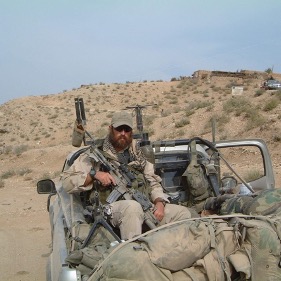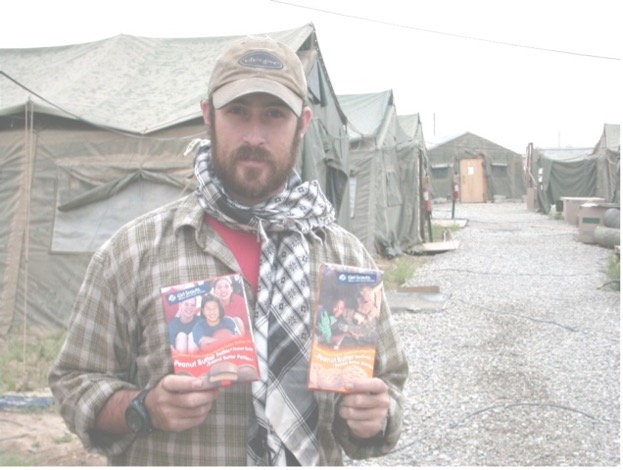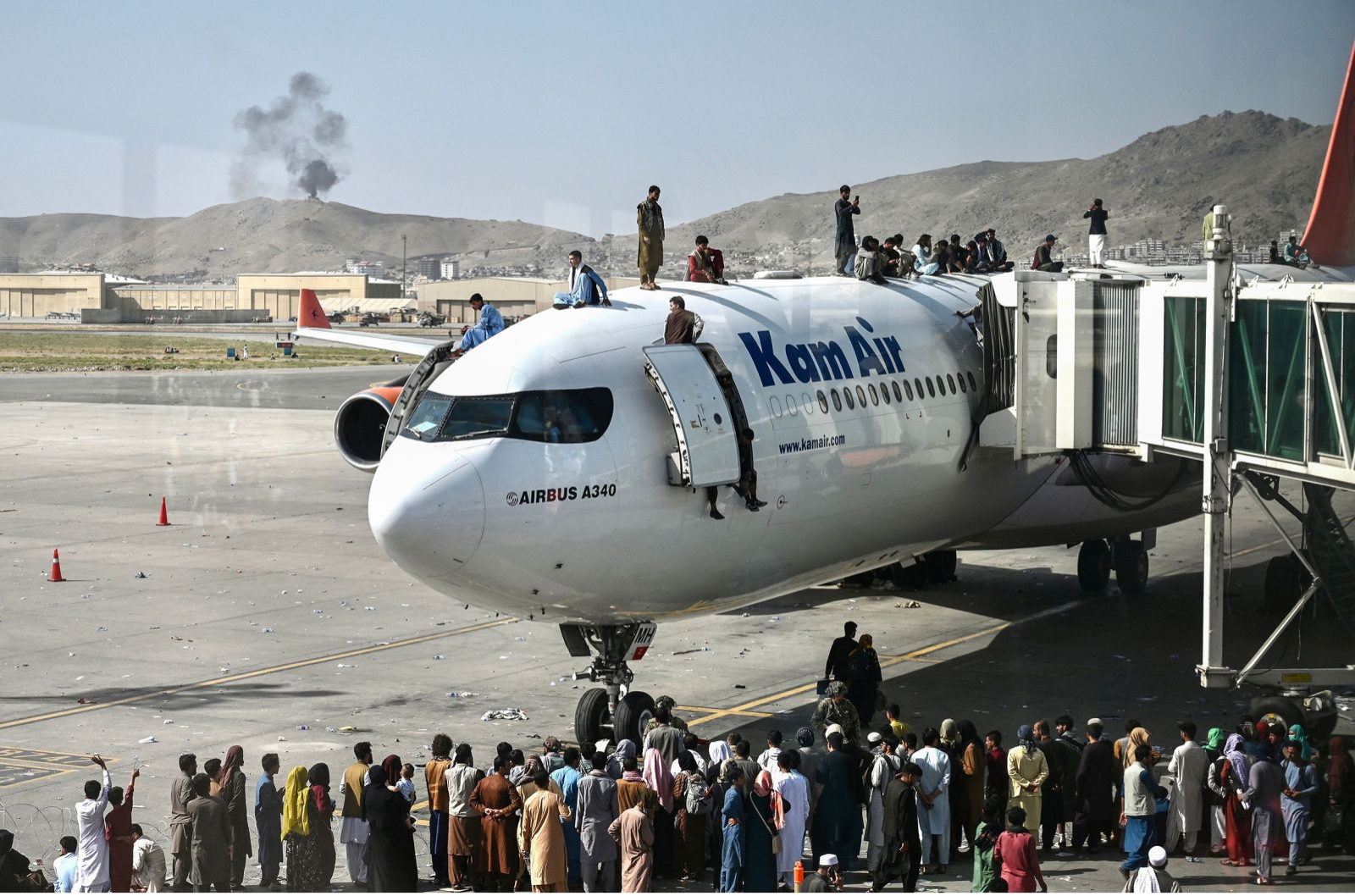
My son was a student at the University of Colorado when he joined the National Guard. He’d used up the four years worth of college tuition his mother and I promised and needed more to keep going. His focus was on paying for school, but his sport was biathlon (skiing and shooting), and the National Guard was the sport’s biggest financial sponsor. It was a good option.
He didn’t think he was going to go to war when he signed up. Neither did I when I joined the Marine Corps. It was a remote possibility in both cases but given the circumstances we saw opportunities to learn essential skills that could save us in case it did happen. I became a fighter pilot. He became a Special Forces soldier.
I was luckier. I finished my 8-year commitment before Vietnam got big, but in the wake of 9/11 he and his Special Forces team were among the first US troops deployed to Afghanistan. Their mission was to track down Osama Bin Laden in the mountains of Tora Bora.
Yesterday, in response to the calamitous pullout of US troops and affiliated civilians, he wrote the following:
“Watching the news is hard the last couple of days. I hear my friends asking, “Did we make a difference?” These are my brothers and sisters, who have stood shoulder to shoulder with me in some of the hardest times and with whom I would stand back-to-back with against any odds. Quiet professionals who committed to doing the best job they could no matter what the obstacles in their way were.
I remember watching my teammates interact with the locals in Jalalabad, kicking a soccer ball or throwing a frisbee, seeing the laughter in the children and their parents.
I remember searching the mountains and meeting with people to find the tools of war that could have brought down a plane of innocents and taking them to be destroyed.
I remember meeting an old man who just thought that firing his anti-aircraft weapon was fun and telling him that might not be a great idea.
I remember our medics helping people to have clean water so that their children could be healthy.
I remember one man who turned his fighters around to come and save my friends when everyone ran.
Maybe the big picture is hard to see right now. I hold by what Admiral William McRaven has said much more eloquently than I can. “One person can change the world by giving people hope.” If I or my teammates have affected one person, if we have given one person hope, the effect cannot be denied and is exponential. Would I do it again? Yes. Absolutely. If I have given one person hope through my actions, then every sacrifice and all the effort to get me to that moment was worth it.”
I’m proud of his service and agree with his statement. From Vietnam to Iraq to Afghanistan, America has fumbled the ball repeatedly. Since the end of WWII, our leaders haven’t shown they don’t know how to set goals, execute a plan, achieve it, and get out. Korea. Vietnam. Bosnia. Afghanistan. Iraq. All failures.
In the immediate aftermath of 9/11, America’s stated goal was to hunt down Osama Bin Laden and decimate his organization. My son’s team chased him through Tora Bora but were called off so the Afghan army could get credit for doing the job. We know how that worked out. Then George Bush, Dick Cheney, Paul Wolfowitz, and Richard Perle co-opted the 9/11 opportunity to “liberate” Iraq, something they had been aching to do since George H.W. stopped at the border in the Gulf War. The rest is history. Osama vanished and Afghanistan morphed into an endless tribal conflict and second-tier nation building exercise.

Shortly after this picture was taken, a clueless new “Big Army” General was all over my son’s SF team for uniform violations. They were under pressure to shave their beards, take off the keffiyeh scarves, and wear traditional Army field uniforms – the functional equivalent of turning them into targets. Fortunately, they survived and completed their tour because they got the job done. They returned to the US unharmed. He retired two years ago after 20 years in Special Operations and a dozen overseas deployments.
In the 20 years since the war in Afghanistan began the US has spent roughly 1 trillion dollars. There have been 3500 coalition deaths, 21,000 US soldiers injured, 64,000 Afghan security and national police killed, and according to the United Nations Assistance Mission in Afghanistan (Unama), nearly 111,000 civilians killed or injured since it began systematically recording civilian casualties in 2009. (BBC.com)
I’m profoundly upset and angry that Joe Biden, a man whose judgment I respected until now, couldn’t order and execute an organized and peaceful withdrawal of American troops and vulnerable Afghan partners.
Shameful…and so is the BS defense he’s throwing up since Kabul fell on Saturday. Today, the Taliban controls the streets and access to the airport. The tarmac at Kabul International Airport is a mosh pit for thousands of desperate Afghans. A failure of colossal proportions.
Own it, Mr. President! Saying, “The buck stops here” then retiring to the isolation of Camp David doesn’t cut it. When mistakes are made the Commander-in-Chief needs to step up and fix it even if it means taking”friendly fire” from friends and foes. We owe it to the troops and our Afghan partners to provide a safe exit and safe havens before we cut and run.
Get your ass back to the White House and manage this crisis.

































Thanks Jack,
Your postings are always interesting to read.
Thanks to your son for his 20 years of service. You have every reason to be proud.
I agree wholeheartedly with your opinions except as they relate to South Korea. Unlike the natives in all the other countries you listed, the South Koreans were unified in their hatred of the North, and fought bravely and hard against the North Korean and Chinese troops. And South Korea has turned out pretty well.
The only excuse I can see for Biden’s failure to foresee the inevitable is that he relied upon what his generals told him. Since 2001 our revolving door of generals have uniformly issued optimistic statements about progress in Afghanistan. Generals Dunford and Milley, our former and current Chiefs of Staff, each had their turn commanding Afghanistan and both were certain that progress was being made. These men were and are either self delusional or dishonest. An honest reality based general would have advised that we cut our losses and head home no later than by 2003.
Burt: You’re right about how hard S.Korea fought against the North, but my point was that it was another war that ended in a stalemate. The US and S.Korea stopped the invading armies but in the end the country was still divided at the 38th Parallel.
There is a book about US Generals since WWII by Thomas Ricks. It talks about their risk averse culture and concern with promotion. It’s an interesting book and Afghanistan falls clearly within its hypothesis.
Yep. I agree…. it’s a disgrace leaving those people to the Taliban.
Jack, I’m stunned…we are finally in total agreement. This is a catastrophe in all respects, militarily, economically, and morally. China, Russia, and Iran are licking their chops and our allies are left wondering what the hell is going on. There will be repercussions for years. But I am thankful that your son is home and safe. He sounds like a wonderful young man.
D
Thanks, D.
I don’t dispute the contention that the withdrawal could have been better organized, but looking back at the history of withdrawals they are always messy.. Someone recently said that there is no elegant way to lose a war.
In the loss of Jerusalem to Salidin the Christian Priests and nobles absconded with all the treasure leaving the prople to fend for themselves. Saladin,
seeing that the treasure was already gone granted amnesty to those remaining and gave up on ransom. The Christians were amazed since they had killed every man woman and child when they had successfully seized Jerusalem.
The Mahdi’s capture of Khartoum during his war of independence against the Anglo Egyptian forces was much more unpleasant. Was that Gladstone’s fault or “Chinese” Gordon’s.
Nixon had two years to plan an orderly withdrawal from Saigon.
An orderly withdrawal from a country occupied by the enemy can only be obtained through the cooperation of the winning side or a politically impossible deployment of overwhelming force that might rekindle an already lost war.
It remains to be seen how much the desire for international acceptance will make the Taliban continue try to balance their desire for order and as painless a transition as possible with their rank and file’s impatience. So far they have honored the Doha agreement to the letter.
Our involvement in both Vietnam and Afghanistan has not been totally without result.
In Afghanistan the woman’s movement in that country that had its origins in the 1920s was accelerated by our involvement and the modern technology of cell phones and the internet combined with the huge increase of young women with a secondary education make will make that genie impossible to put back in the bottle.
In Vietnam the moderation of the economics of communism was profound.
Whether accelerating the slow natural development of modernization in backward regions is worth American lives is a question that has only a political answer here at home. It us not up to the “Chinese” Gordons.
Well I have to say, I’m agreeing with you on this. As much as I admire Joe Biden, I’ve read & listened to podcasts of former military who became friends with the Interpreters. These people are in serious situations: afraid of being killed and or their families being killed.
It hurts me to feel this way…hopefully this administration will “fix it!”
A friend of Mike Shea who generously shares your column!!
Jan: Thanks for the comment and thank Mike for sharing.
Best, Jack
I am glued to my radio listening, in disbelief, as people’s lives unravel. I fear this is just the beginning of the bad news. Thanks for sharing your story, Jack — I enjoyed seeing a grown-up Doug.
Jack, I certainly agree with your assessment of the failures of Joe Biden and his administration in the long overdue exit from Afghanistan. As in Vietnam, the military leadership proved incapable of understanding the situation and planning an orderly exit as the situation on the ground collapsed. In the 20 years of involvement of the US and its allies in Afghanistan there was at least one positive outcome for that collection of disparate tribal regions: more than 2 million girls and women were educated. I believe that, in the long run, that will have an important socioeconomic impact on the country.
I also agree with a previous comment that Korea was and is a very different situation.and our involvement there has been beneficial to 59 million Koreans. Bosnia is a strange addition to your list. Yes, we had a peace-keeping force there until 2009, but our involvement was key to ending the Serbian-perpetrated genocide that was occurring. See https://en.wikipedia.org/wiki/Bosnian_War and https://www.brookings.edu/articles/decision-to-intervene-how-the-war-in-bosnia-ended/.
Jim